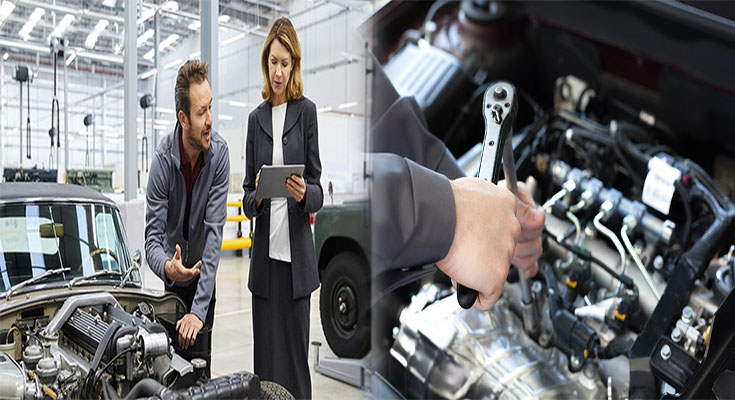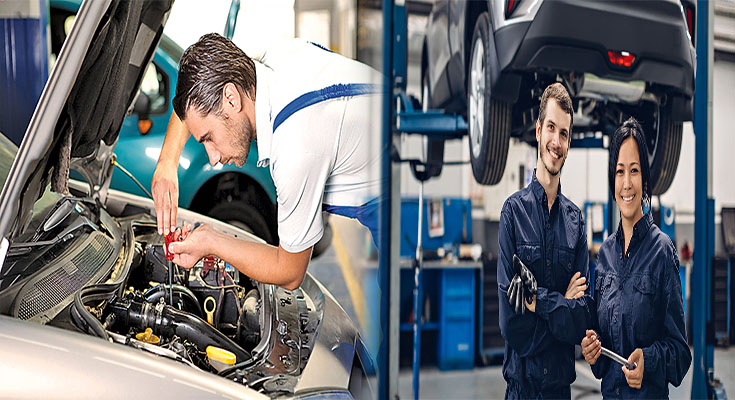In today’s automotive industry, automobile mechanics encounter a myriad of challenges that require agility, adaptability, and continuous learning. From keeping pace with rapidly evolving vehicle technologies to addressing shifting customer expectations, mechanics must navigate a dynamic landscape to thrive in their profession. Let’s delve into the key challenges faced by automobile mechanics today and explore how they can effectively tackle these obstacles:
1. Technological Complexity and Advancements
The automotive industry is experiencing a remarkable shift towards advanced vehicle technologies, including hybrid and electric powertrains, advanced driver-assistance systems (ADAS), and intricate computerized control systems. Automobile mechanics must stay updated with these advancements and acquire the necessary expertise to diagnose, repair, and maintain modern vehicles effectively.
Solution:
- Pursue specialized training programs and certifications tailored to cutting-edge automotive technologies.
- Stay informed about industry trends and emerging technologies through continuous education and professional development.
2. Diagnostic Complexity and Specialized Tools
Modern vehicles are equipped with sophisticated onboard diagnostic systems and intricate electronic components, making diagnosis and troubleshooting more intricate than ever. Additionally, the introduction of high-voltage systems in hybrid and electric vehicles necessitates the use of specialized diagnostic tools and safety equipment.
Solution:
- Invest in high-quality diagnostic equipment and tools to effectively diagnose and troubleshoot modern vehicle systems.
- Participate in training courses that focus on utilizing advanced diagnostic tools and techniques specifically designed for modern vehicles.
3. Environmental and Regulatory Compliance
Automobile mechanics must adhere to strict environmental regulations and safely manage hazardous materials, such as engine fluids, refrigerants, and battery components. Compliance with environmental standards and safety regulations adds an additional layer of complexity to daily operations in the workshop.
Solution:
- Implement proper waste disposal and recycling practices to ensure compliance with environmental regulations.
- Stay updated on regulatory changes and invest in eco-friendly practices, such as adopting environmentally sustainable fluids and materials.
4. Customer Education and Communication
Educating customers about the intricacies of modern vehicle systems and the necessity of preventative maintenance is crucial. Communicating complex technical issues in a clear and understandable manner to customers who may lack technical expertise poses a challenge for automobile mechanics.
Solution:
- Develop effective communication skills to explain technical concepts and articulate the importance of maintenance and repair services to customers.
- Create educational materials and resources to empower customers with knowledge about their vehicles, thus fostering trust and understanding.
5. Workforce Shortages and Skills Gap
The automotive industry is facing a shortage of skilled mechanics, exacerbated by the retirement of experienced professionals and a growing skills gap due to rapid technological advancements. Finding and retaining qualified technicians with the requisite expertise is a significant challenge for repair shop owners and managers.
Solution:
- Cultivate a learning culture within the workshop and provide opportunities for continuous education and skills enhancement for the existing workforce.
- Collaborate with educational institutions and vocational programs to attract and train the next generation of automotive technicians.
6. Integration of Digital Technologies
The integration of digital technologies, including digital service manuals, customer relationship management (CRM) systems, and vehicle diagnostics software, presents a learning curve for mechanics accustomed to traditional methods of operation.
Solution:
- Embrace digital tools and software solutions to streamline operations, enhance customer experience, and improve overall efficiency in the workshop.
- Provide training and support to help mechanics adapt to digital platforms and leverage them effectively.
7. Balancing the Shift to Sustainable Vehicles
With the automotive industry’s increasing emphasis on sustainable and eco-friendly transportation, mechanics must adapt to the complexities of servicing and maintaining hybrid, electric, and fuel-efficient vehicles.
Solution:
- Pursue specialized training programs focused on hybrid and electric vehicle technologies and sustainable automotive practices.
- Invest in tools and equipment tailored to the unique requirements of sustainable vehicles.
By acknowledging and effectively addressing these challenges, automobile mechanics can position themselves for success in an evolving industry landscape. Embracing continuous learning, leveraging technology, and prioritizing customer-centric practices are essential strategies for navigating these obstacles and thriving in the ever-changing world of automotive repair.













